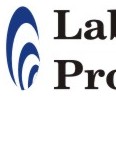 |
 |
 |
 |
 |
|
 |
 |
 |
 |
 |
|
 |
 |
 |
 |
 |
|
 |
 |
 |
 |
 |
|
 |
 |
 |
 |
 |
|
LAWS THAT PROTECT PEOPLE LIVING WITH HIV/AIDS
>>
HIV/Aids Technical
Assistance Guidelines Labour Relations Act (No.66 of 1995) The Labour Relations Act protects employees against unfair dismissal. If an employee is dismissed just because he/she has HIV/AIDS this dismissal is based on discrimination and is Automatically Unfair. The employer can be taken to the CCMA or Labour Court and be forced to re-employ the employee or give him/her compensation stipulated by the Court. Dismissal is only fair if it is based on the wrongful conduct of an employee or if an employee can no longer do his/her work properly. Where employees can no longer do their work, an employer should first investigate what the extent of the employee's capability to do their job is and what alternatives are available apart from dismissal. These alternatives can include extended sick leave without pay, adapted duties and possible means of accommodating the employee's disability. An employee no longer able to work must be provided with an incapacity hearing before they can be dismissed. Employment Equity Act (No.55 of 1998) This Act ensures that all employees are treated equally and that there is no discrimination in the workplace. The Act promotes equal opportunity by eliminating unfair discrimination and prohibits unfair discrimination (directly or indirectly) against an employee on the grounds of their HIV status. The Employment Equity Act also prohibits medical testing to determine the HIV status of an employee, except in limited circumstances. Testing can only be done if the Labour Court agrees to it. Employees may not be forced to answer questions on their HIV status. It is not unfair discrimination to exclude an HIV-positive person (when hiring them) if it is essential that an employee must not be HIV-positive in that job. The employer must be able to prove to the Labour Court that HIV-negative status is essential to the job. The "Code of Good Practice on Key Aspects of HIV/AIDS and Employment" is part of the Employment Equity Act and gives employers guidelines to implement the requirements of the Act. Basic Conditions of Employment Act (No.75 of 1997) This Act sets standards for employers on how many hours an employee may work in a week and how much leave they are allowed to have. Employees are allowed to take a total of six weeks paid sick leave every 3 years and employees with HIV/AIDS can take this leave just like any other employee in the organization. Sick employees can ask employers to have more sick leave for less pay. Promotion of Equality and Prevention of Unfair Discrimination (No.4 of 2000) The Promotion of Equality and Prevention of Unfair Discrimination Act also sees to it that there is no unfair discrimination in the workplace, especially with things like insurance. This means that an employee with HIV/AIDS must be treated in exactly the same way as all the other employees in the organization in all matters. Occupational Health and Safety Act (No. 85 of 1993) An employer is obliged to ensure that the risk of occupational exposure to HIV is minimized as far as is possible. Compensation for Occupational Injuries and Disease Act (No.130 of 1993) If an employee is exposed to infected blood or body fluids as a result of a workplace accident and is infected with HIV, he or she may apply for benefits in terms of Section 22 (1) of the Act. The information provided herein is the intellectual property of >> Free to Grow POSITIVE LIVING and used with their permission. We thank them for their assistance >> code of good practice on aspects of HIV/AIDS employment
>>
HIV/Aids Technical
Assistance Guidelines >> code of good practice on aspects of HIV/AIDS employment >> useful links >> Labour Law |
|
|National Assistance: 0860 LABOUR/ 0860 522687
|
||||
| To join... | ||||
| (the Membership Fee is only R85pm): | ||||
|
||||